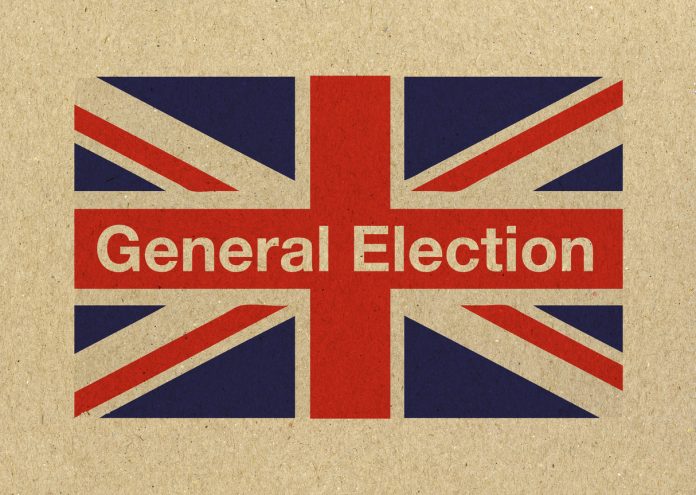There is a fine line between creative campaigning designed to grab attention and campaigning that creatively manipulates the truth.
In this exclusive opinion piece Alastair McCapra explores the increasingly blurred line between the two that is becoming a worryingly familiar sight in our politics, particularly as we head into general election territory
Across party lines, there has been a growing reliance on deceptive tactics designed to manipulate public opinion and secure an advantage in the polls. Here Alastair McCapra, CEO of the Chartered Institute of Public Relations (CIPR), explores political deception further.
The art of political manipulation and deceptive tactics
It is an approach we have already seen in the recent, local elections. During the bruising London Mayoral campaign, the Conservative candidate Susan Hall sent leaflets that looked like penalty charge notices with the words ‘DRIVING CHARGE NOTICE. DO NOT IGNORE. WARNING’ on the front.
As well as its design being misleading, the leaflets included claims that Sadiq Khan, the Labour candidate, was set to introduce a pay-per-mile scheme for drivers, which led to Labour calling for the Crown Prosecution Service to investigate whether this breached electoral law.
The Electoral Commission states that “political campaigning should be transparent.” The rules state that voters must know where and from whom information is coming so that they can make an informed decision about who to vote for. Susan Hall will argue that the leaflet did include that information once you opened it.
Across party lines, there has been a growing reliance on deceptive tactics designed to manipulate public opinion and secure an advantage in the polls.
In an increasingly competitive political landscape, over recent years, we have seen the Liberal Democrats publishing campaign material that apes lifestyle magazines; the Conservatives rebranding their Twitter account to look like a fact-checking service during a leaders’ debate; and Labour using social media to claim that “Rishi Sunak does not think adults convicted of sexually assaulting children should go to prison”.
The power of the media
Each of these approaches sits just within the legal boundaries. Even if they are corrected, such mistruths have been shared and viewed widely and often unchecked. Social media has only amplified the impact of these practices, with political parties able to disseminate their messages to a vast audience with speed and efficiency. Attention-grabbing graphics, emotionally charged language, and viral content quickly drown out more nuanced and factual discussions, making it increasingly difficult for voters to separate truth from fiction.
Moreover, the rise of targeted advertising on social media has enabled political campaigners to deliver tailored messages to specific segments of the electorate, exploiting their unique fears and biases. This only serves to further fragment the public discourse and undermine the notion of a shared national narrative. Not that regional or local politics is immune.
Earlier this year, the Aboyne Medical Practice in Scotland had to issue a statement reassuring patients that it was not due to close following a leaflet from Conservative MP Andrew Bowie that talked up his campaign to keep it open. The Medical Practice had to contact the MP asking him to “correct the assertion”.
In Wales, Plaid Cymru’s Westminster leader, Liz Saville Roberts MP, accused the Conservatives of “egregious misleading campaigning” surrounding the nation’s regional affairs budget and business support.
The erosion of public trust through deceptive tactics
In isolation, these examples might not appear to be significantly damaging our democracy, but taken together, they present a worrying trend that contributes to the erosion of trust the public feels towards those in positions of power. Upon receiving a political party campaign leaflet in the post, one voter told the BBC that it “just shows a level of untrustworthiness, blatantly trying to trick the people.”
Political parties should take note. If people don’t feel they can trust our political institutions, they will turn elsewhere. These tactics have consequences.
If people don’t feel they can trust our political institutions, they will turn elsewhere
With the number of global elections taking place this year, it is no surprise that The World Economic Forum’s Global Risks 2024 report identified misinformation and disinformation as the biggest short-term risk facing the world. A voter base that mistrusts its own politicians is fertile ground for external actors with nefarious intentions to have a greater influence on the outcome of elections.
Willful ignorance
The fact is that businesses are held to higher standards when it comes to their communications than political parties.
This is why the independent fact-checking organization Full Fact is calling for a new law to end deceptive campaign practices. Their 2022 report on misinformation found that as many as 50 MPs, including Prime Ministers and Ministers, failed to correct false, unevidenced, or misleading claims despite being called to do so and, despite the Office for Statistics Regulation, the UK Statistics Authority, and the House of Commons Liaison Committee challenging the then Prime Minister Boris Johnson about his repeated use of false employment statistics in Parliament, it was never corrected.
Politicians and political parties believe they can get away with mistruths and calculate that, even when they are found out, it is a risk worth taking.
Simply put, the short-term gains of possible election victories due to deceptive campaigning are not worth the long-term damage this is doing to trust in our politics. As we approach the next election, it is crucial that political parties prioritise honesty and integrity in their campaigns, ensuring that our democratic processes are not further undermined by deceptive practices.
This piece was written and provided by Alastair McCapra, CEO at the Chartered Institute of Public Relations (CIPR)











